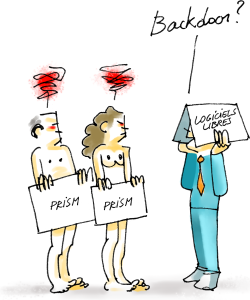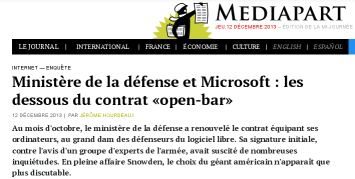On 22 January 2014, the French Court of Cassation issued a new ruling [fr] on the bundled sale of software with a computer. It reiterates its judgement of November 2010 [fr] on the need to evaluate the issue clearly and objectively, in order to make sure that consumer rights are respected.


 "Using free/libre software […] is the first step in taking control of our digital lives, and that includes preventing surveillance."
"Using free/libre software […] is the first step in taking control of our digital lives, and that includes preventing surveillance." 


